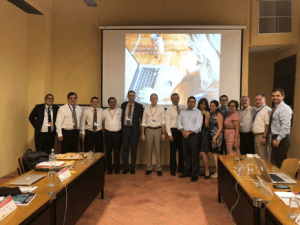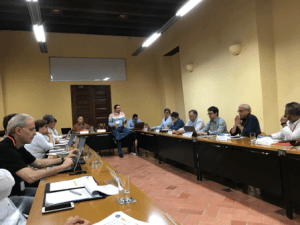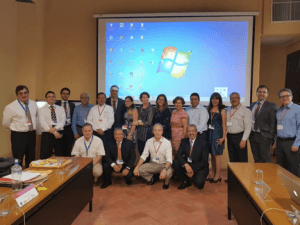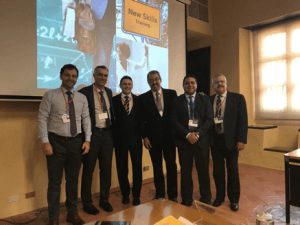New profiles, same challenges – Part III
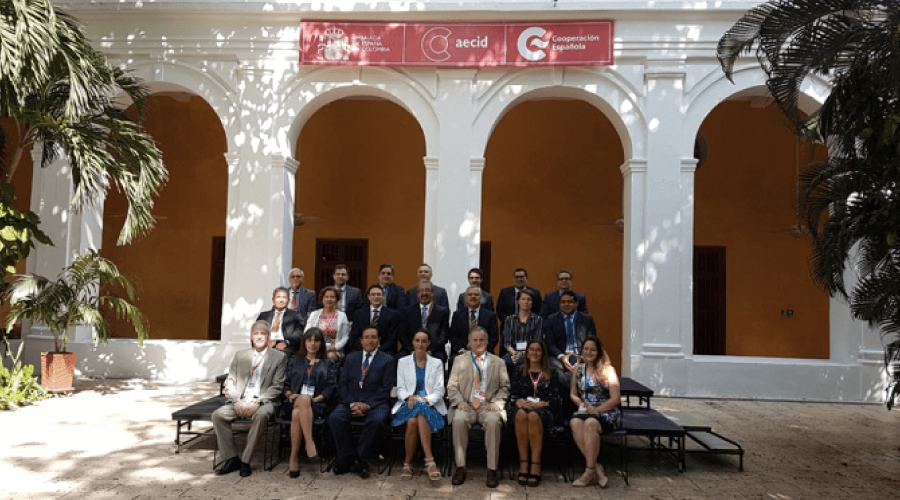
Joint contributions for arriving at mediate future solutions
Thanks for waiting!
To conclude this series, it was necessary to take further steps that will lead our reflection to a specific point in order to continue with the constructive dialogue.
Sponsored by the German Cooperation – GIZ, the CIAT Tutors Network met on June 6-8, at the AECID Training Center in Cartagena de Indias, Colombia. Present in this meeting were Tutors from Argentina, Bolivia, Colombia, Ecuador, Spain, Mexico and Peru, whose purpose was to present the results of the CIAT Auditors Training Program and to begin working on the design of a Tax Auditor’s Competency standard. The experience has been most successful and gratifying.
As discussed in the first two sections of the series, the demands for improving the quality of the tax administrations’ human capital have to do with the competencies for carrying out their functions and the continuous demands for responding to other labor requirements. On this occasion, it is a pleasure to share with you that, precisely in these coming weeks we will be concluding the first Auditors Program and it was possible to obtain feedback on its achievements and improvements. Aware that there is an even greater challenge, we have begun working on the implementation of ISO Standard -17024. This is a long-term initiative which will require a significant amount of work and which is compatible with the recent ideas presented at the CIAT General Assembly held in Ottawa last May, where it became evident that there is an interest in making new contributions to the modernization of our tax administrations.
What is ISO-17024?[1]
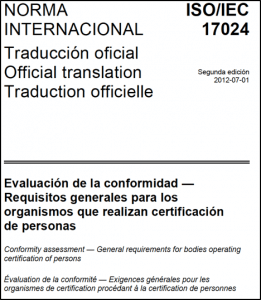 This is an International Standard of the ISO family, whose purpose is to establish the requisites of a program for certifying individuals and, in particular, the requisites of the institution that will be authorized as Certifier. It is focused on management by competencies and defines the latter as the capacity shown for applying knowledge, skills and attitudes. In fact, if thus considered, our interest at CIAT is to implement this Standard with a very specific purpose; namely: The Certification of the Tax Auditor.
This is an International Standard of the ISO family, whose purpose is to establish the requisites of a program for certifying individuals and, in particular, the requisites of the institution that will be authorized as Certifier. It is focused on management by competencies and defines the latter as the capacity shown for applying knowledge, skills and attitudes. In fact, if thus considered, our interest at CIAT is to implement this Standard with a very specific purpose; namely: The Certification of the Tax Auditor.
Among the outstanding aspects are the requisites for creating an evaluation model and, accordingly, a certification system. As a result thereof, CIAT needs, on the one hand, to institutionalize an evaluation and certification scheme and on the other, to promote the certification of the processes for managing human talent within the tax administrations that are members of CIAT.
Auditor’s profile
As explained in the second part of this series, it will be necessary to develop an Auditor’s profile as reference of the certification. Nevertheless, the fact is that we have worked in advance in the Training Program. It is a 56-week virtual program covering different areas dealing with the work of the Auditor, whose design and conduction was sponsored by GIZ. It goes without saying that this profile’s development will be based on the definition of competencies.
Auditors’ Program
This project gave definite form to the GIZ’s cooperation in the training of human capital and is one of the main indicators of the collaboration Project. It began with the first meeting of Tutors in 2016 wherein the curriculum of the Auditors’ Training Program was designed and continued to be developed and implemented from 2016 to 2018. This program includes such topics as: Ethics, Tax Administration, Fundamentals of Law, Accounting Processes, Social Security, Customs Taxation and Foreign Trade, Control Processes, Information Technology applied to the TA, International Taxation and others.
Thanks to the success of this process, it is a great pleasure to inform that the second intake of this program is about to begin. The merit of the tax administrations and the students who participated in this program is worth recognizing. Likewise, it is a great satisfaction knowing that we have accomplished a great challenge. Nevertheless, we will go further. There are several divergences in promoting the professionalization of the collaborators and for this reason, our project endeavors to combine these two initiatives: The Training and Certification of the Auditors.
Certification Project
This Project involves different stages; one of them being, to institutionalize Certification among CIAT’s tasks. To this end, we have included the certification tasks in our strategic plan. Likewise, it is also necessary to design a Certification System Model which in turn may render explicit an Evaluation System. It is no easy task, since it is essential to comply with all the ISO-17024 requisites for the design of both Systems, which will require a significant amount of our efforts and will develop our own competencies.
In addition to establishing the requisites that may be necessary for rendering these systems feasible, perhaps one of the key requisites is the definition of the scope of this certification; namely: the implementation of a Tax Auditors Certification System, based on a Competency Standard. We are not referring to a position, a task or labor hierarchy or status. Rather, we are referring to the person who carries out the verification, confirmation or auditing function in our countries. Therefore, we must implement other consistent actions, since the evaluation will be a real challenge, given that in our region there are differences in the auditing models, thus implying different roles, administrative units and even different processes.
The truth is that, in line with the ISO spirit, our intention is to develop or strengthen the Auditor’s competencies that may allow him to perform his job.
Thus, the three initiatives (Training, Evaluation and Certification) shall be another of CIAT’s contribution to the membership and even to the Network of Tax Organizations (NTO-English acronym), which brings together 9 of the 11 Administration Associations of the world having similar concerns in the field of professionalization.
This long-term Project which begins in Latin America calls for significant support from the interested parties and sponsors which may probably be added, for the benefit of the tax administrations and society we serve.
We hereby express our sincere gratitude to our tutors, who contribute their talent and experience to this great initiative. Without their enormous contribution, a venture of this magnitude would be unthinkable. Likewise, we invite our tax administrations to join and participate in the forthcoming stages in order that the Certification of Tax Auditors may be a reality.
[1] For additional information, you may consult the Spanish version at: https://www.iso.org/obp/ui#iso:std:iso-iec:17024:ed-2:v1:es
1,803 total views, 3 views today

